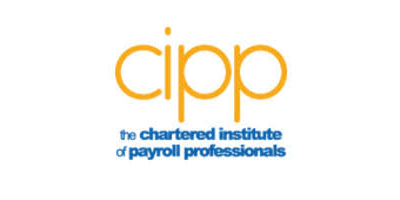
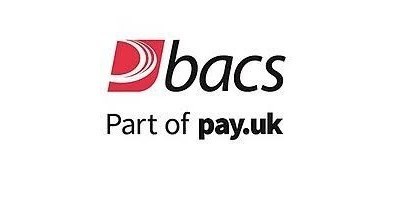
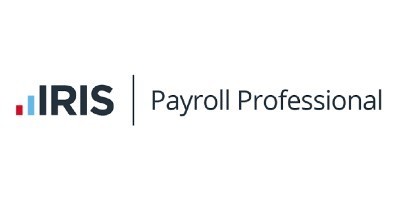
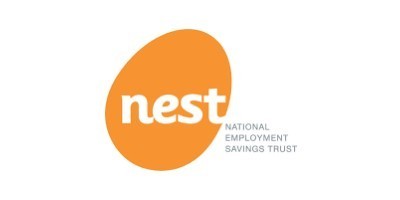
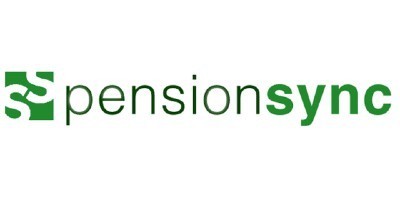
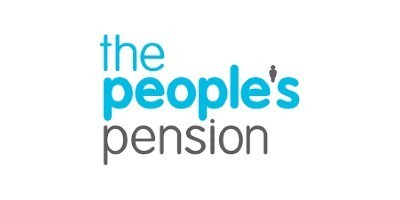
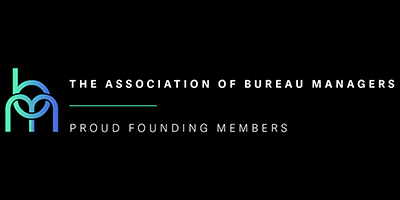
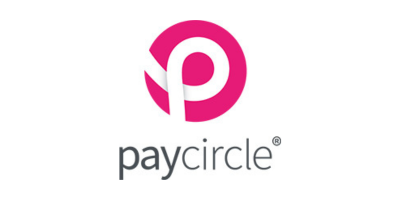
In a bid to help those businesses that have been forced to close owing to local restrictions, the Government has again extended the Job Support Scheme (JSS) which is due to commence on 1 November 2020.
The scheme has now effectively been split into two categories, JSS Open, for those employers who can operate safely but are facing decreased demand, and JSS Closed for those employers who have been legally required to close their premises as a direct result of coronavirus restrictions set by one or more of the four governments of the UK.
The Job Support Scheme will be open from 1 November 2020 and run for 6 months, until 30 April 2021 with the terms of the scheme being reviewed in January. Claims can be made, in arrears, from 8 December 2020.
Many employers can operate safely but continue to face reduced demand so they may need extra support over the winter to help keep their employees attached to their workforce. For these employers, the Job Support Scheme, through JSS Open, will give employers the option of keeping their employees in a job on shorter hours rather than making them redundant.
Recognising the evolving situation with the pandemic and health restrictions, and the pressures employers are facing this winter, the government has announced that it will increase the scale of support available to employers through JSS Open above what was initially announced, in order to protect more jobs.
The employee will need to work a minimum of 20% of their usual hours and the employer will continue to pay them as normal for the hours worked. Alongside this, the employee will receive 66.67% of their normal pay for the hours not worked - this will be made up of contributions from the employer and from the government. The employer will pay 5% of reference salary for the hours not worked, up to a maximum of £125 per month, with the discretion to pay more than this if they wish. The government will pay the remainder of 61.67%, of reference salary for the hours not worked, up to a maximum of £1,541.75 per month. This will ensure employees continue to receive at least 73% of their normal wages, where they earn £3,125 a month or less.
Employers have been legally required to close their premises as a direct result of coronavirus restrictions set by one or more of the four governments of the UK. For these businesses, the Job Support Scheme, through JSS Closed, will help them through the period that they are directly affected by these restrictions by supporting the wage costs of employees who have been instructed to cease work in eligible (closed) premises.
Each employee who cannot work due to these restrictions will receive two thirds of their normal pay, paid by their employer and fully funded by the government, to a maximum of £2,083.33 per month, although their employer has discretion to pay more than this if they wish. This will help protect employee incomes, limit unemployment and retain employer-employee matches so that these premises are able to reopen as quickly as possible when circumstances allow.
Employees may also be entitled to additional financial support, including Universal Credit.
Employers will be able to access the Job Support Scheme if:
Additional eligibility criteria will apply depending on whether the employer is claiming a JSS Open grant or JSS Closed grant.
Organisations that have staff costs that are fully publicly funded (even if they are not in the public sector), should use that money to continue paying their staff, and not use the Job Support Scheme.
Organisations can use the scheme if they are not fully funded by public grants, for the proportion of their revenue disrupted due to coronavirus. They should contact their sponsor department or respective administration for further guidance.
Those that do claim should do so using the same process as all other employers.
Eligible employers will be able to claim the Job Support Scheme grant for employees who were on their PAYE payroll between 6 April 2019 and 11:59pm on 23 September 2020. This means an RTI Full Payment Submission notifying payment in respect of that employee must have been made to HMRC at some point from 6 April 2019 up to 11:59pm 23 September 2020.
Employers can only claim for employees that were in their employment on 23 September 2020. If employees ceased employment after 23 of September 2020 and were subsequently rehired, then employers can claim for them.
An individual is an employee for the purposes of this scheme if they are treated as an employee for Income Tax purposes.
Employees can be on any type of contract, including zero hours or temporary contracts.
Agency workers are regarded as employees of an employment agency for the purposes of this scheme, provided they are employees for Income Tax purposes.
Employees do not need to have been furloughed under the Coronavirus Job Retention Scheme to be eligible for the Job Support Scheme.
Employers will be able to top up employee wages above the level of minimum contributions at their own expense if they wish.
Employers cannot claim both JSS Open and JSS Closed in respect of a single employee for the same day.
Employees will be able to undertake training voluntarily in non-working hours. Where time spent on training attracts a minimum wage entitlement in excess of the grant payment, employers will need to pay the additional wages.
Employees whose hours reduce due to the COVID-19 pandemic will continue to have access to Working Tax Credit and its childcare element for the duration of the JSS scheme.
The government is putting will introduce parental pay legislation as soon as possible (covering maternity allowance, statutory maternity/, paternity, shared parental, adoption and parental bereavement pay) to avoid parents losing out on their entitlement to parental pay as a result of being put on the Job Support Scheme during the relevant assessment period.
More details on employee eligibility will be available in further guidance published by the end of October.
In addition to the general Job Support Scheme eligibility criteria set out in section 2, employers are eligible to claim the JSS Open if:
Eligible employers will be able to claim the JSS Open grant for employees who are working at least 20% of their usual hours.
Employees can do training in working hours while being claimed for under the Job Support Scheme. Hours that employees spend training are paid for by the employer at their full rate of pay and will count towards 20% of their usual hours.
Employees are entitled to the National Living Wage, National Minimum Wage or Apprentices Minimum Wage for the hours they are working or treated as working (such as training undertaken at the request of the employer in non-working hours) under minimum wage rules. For JSS Open, at least minimum wage rates must be paid for all hours worked or treated as worked.
To be eligible for the grant, employers must have reached a written agreement with their employee (or reached written collective agreement with a trade union where the relevant terms are determined by collective agreement) that they have been offered a temporary working agreement. The agreement must be available for view by HMRC on request.
This temporary working agreement must cover at least seven consecutive days.
Employers should discuss with their staff and make any changes to their employment contract by written agreement. When employers are making decisions, including deciding to whom they should offer reduced hours, equality and discrimination laws will apply in the usual way.
Employers must maintain records relating to the terms of the temporary working agreements for each employee, and:
HMRC will publish further guidance on what to include in the written agreement by the end of October.
In addition to the general Job Support Scheme eligibility criteria, employers are eligible to claim JSS Closed if their business premises at one or more locations has been legally required to close as a direct result of coronavirus restrictions set by one or more of the four governments of the UK. This includes premises restricted to delivery or collection only services from their premises and those restricted to provision of food and/ or drink outdoors.
Businesses premises required to close by local public health authorities as a result of specific workplace outbreaks are not eligible for this scheme.
Employers are only eligible to claim for periods during which the relevant coronavirus restrictions are in place. Employers will not be able to claim JSS Closed to cover periods after restrictions have lifted and the business premises is legally allowed to reopen. They may then be able to claim JSS Open if they are eligible.
This is not a complete list of all the conditions for eligibility for JSS Closed and further guidance will be published by the end of October.
Eligible employers will be able to claim the JSS Closed grant for employees:
This is not a complete list of employee eligibility requirements for JSS Closed and further guidance will be published by the end of October.
Employers should discuss with their staff and make any changes to their employment contract by written agreement. When employers are making decisions in relation to the process, including deciding who they should instruct to cease work, equality and discrimination laws will apply in the usual way.
To be eligible for the grant, employers must have reached written agreement with their employee (or reached written collective agreement with a trade union where the relevant terms are determined by collective agreement) that they have been instructed to and agree to stop working for a minimum of 7 consecutive calendar days. The agreement must be available for view by HMRC on request.
Employers must maintain records relating to the terms of these arrangements for each employee. They must:
The employee must agree to the new arrangement.
There are a number of conditions that apply to all employers using the Job Support Scheme. The conditions apply to all employers claiming JSS Open and JSS Closed unless stated.
Employers cannot claim for an employee who has been made redundant or is serving a contractual or statutory notice period during the claim period.
The government expects that large employers (250 or more employees) and their corporate groups using the scheme will not make capital distributions whilst claiming the Job Support Scheme grant. This includes:
The government does not plan to make this expectation a contractual or legal condition of the scheme but encourages business to reflect on their responsibilities and that taxpayers should be able to rely on public money only being claimed where it is clearly needed.
The Job Support Scheme grant will not cover National Insurance contributions (NICs) or pension contributions. These contributions remain payable by the employer.
Employers must deduct and pay to HMRC income tax and employee NICs on the full amount that is paid to the employee, including any amounts subsequently met by a scheme grant.
Employers must also pay to HMRC any employer NICs due on the full amount that that is paid to the employee, including any amounts subsequently met by a scheme grant.
Employers must report these payments via a Full Payment Submission (FPS) to HMRC on or before the pay date in the normal way.
Employers and Employees must also still pay pension contributions in accordance with the applicable pension scheme terms, unless the employee has opted out or stopped saving into their pension. If applicable Student Loan deductions and the Apprenticeship Levy must also still be paid.
Employers must have paid the full amount claimed for an employee’s wages to the employee before each claim is made. They should also pay the associated employee tax and employee and employer National Insurance contributions to HMRC, even if the company is in administration.
Employers cannot enter into any commitment or transaction with the employee which would reduce wages below the amount claimed (for example a salary sacrifice scheme). This includes any administration charge, fees or other costs in connection with the employment. Where an employee had authorised their employer to make deductions from their net salary, these deductions can continue while the employee is working reduced hours provided that these deductions are not administration charges, fees or other costs in connection with the employment (for example, pension contributions and charitable giving).
Employees will be able to check if their employer has made a Job Support Scheme claim relating to them via their Personal Tax Account.
Employers claiming the Job Support Scheme may still claim the Job Retention Bonus in respect of the same employee if they are eligible. Grants claimed under the Job Support Scheme can be used by employers to pay an employee’s wages and help meet the Lower Earnings Limit of the Job Retention Bonus.
There may be occasions where an employee’s pay period includes both eligible amounts to be claimed under the Coronavirus Job Retention Scheme for a period where they were furloughed until 31 October 2020 and an amount in respect of the Job Support Scheme from 1 November 2020. The amounts to be claimed from each of the schemes should be calculated separately following the guidance for each scheme which will take into account the number of days that fall within each of the scheme’s timelines. No amount of gross pay should be included in more than one scheme.
For example, if an employee is paid a weekly salary each Friday covering the previous 7 days, when they are paid on 6 November 2020 this will include their pay for the period Saturday 31 October 2020 through to Friday 6 November 2020. It will be necessary to follow the Coronavirus Job Retention Scheme guidance to calculate the claim for 1 day, being 31 October 2020 and then the remaining 6 days should be calculated following the Job Support Scheme guidance.
The calculated amounts should be claimed separately in accordance with the guidance for each scheme.
For further guidance please contact our payroll department or you can read the full guidance on HMRC's website at:
https://www.gov.uk/government/publications/the-job-support-scheme/the-job-support-scheme
Please provide the information below to access your download.